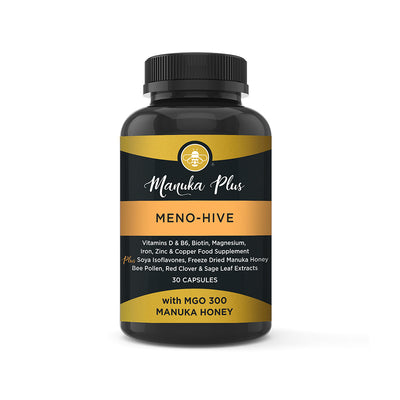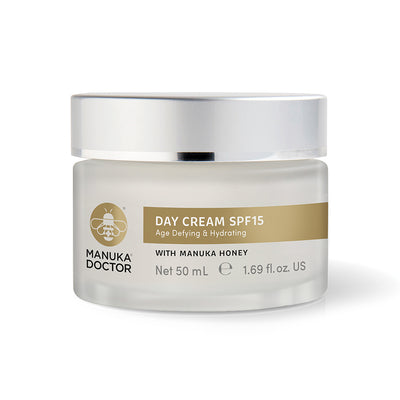Is collagen affected by the menopause?
Loss of skin elasticity is a natural part of the ageing process. For women, when they reach the menopause, which usually occurs between 45 and 55 years of age, estrogen levels decline and skin quickly loses collagen. In the UK, the average age for a woman to reach the menopause is 51. But around 1 in 100 women experience the menopause before 40 years of age.(1)
Studies show that women’s skin loses about 30% of its collagen during the first five years of the menopause. After that, the decline is more gradual with women losing around 2% of their collagen ever year for the next 20 years. (2) If you are looking for information on collagen for menopause then read on.
What happens when collagen levels drop?
As collagen diminishes, you may notice your skin losing firmness and begin to sag, especially around the neck, jawline and cheeks with fine lines and wrinkles starting to appear. The lines and wrinkles you get with the menopause are often crow's feet and lines above the upper lip.
You may also notice joints becoming stiffer as ligaments become less elastic due to changes in levels of collagen and elastin.(3) On top of this, our muscles may start to lose both strength and bulk. Meanwhile, our bone density decreases naturally after the age of 40, with most women then experiencing swift bone loss in the first few years after the menopause.
But it’s not all bad news! There’s mounting evidence that old age brings happiness, intellect and even better sex! (4) And fortunately, you can turn back time by taking care of your specific skin care needs, leading to not only a smarter you but a younger looking you too!

Collagen for Menopause: What can I do?
One sure fast way to replace the collagen lost during the menopause is to take a marine collagen supplement, proven in clinical trials to improve skin smoothness and reduce wrinkles.(5) Our Collagen Supplements not only include 200mg of responsibly sourced marine collagen, they also contain Vitamin C, which plays an important role in making the collagen needed for our skin, blood vessels, cartilage, bones, gums and teeth. (6)
Can a lack of estrogen affect skin dryness?
After the menopause, skin gets drier because oil glands aren't as active. Collagen Queen contains Hyaluronic acid, a polysaccharide produced naturally by the body, which plays a key role in helping skin hang onto water – keeping it moisturised. (7) A 2018 analysis in International Journal of Biological Macromolecules reported that skin products containing Hyaluronic acid improved moisture levels in the skin, and stimulated collagen and elastin to improve skin elasticity.
What skincare products are good for the menopause?
If your skin is feeling a little like the Sahara, treat yourself to an intensive moisture boost with ‘nature’s answer to Botox’. The revitalising Day Cream SPF15 features the highly moisturising properties of Manuka honey leaving skin glowingly soft and naturally plumped.
Collagen boosting Purified Bee Venom (PBV™) helps to reduce the appearance of fine lines and wrinkles. Cell regenerating Royal jelly rejuvenates skin by renewing damaged skin cells and boosting skin’s radiance and hydrating Shea butter and vitamin E moisturise and smooth the complexion for younger looking skin.
What is a good menopause supplement for multiple symptoms?
As well as topping up your collagen levels with a face treatment or collagen supplement, you can also boost your lacking estrogen levels with a natural menopause supplement such as Meno-Hive from Manuka Doctor.
Meno-Hive is rich in Soy isoflavones, a class of antioxidants often referred to as phytoestrogens which have a similar structure to that of the hormone estrogen and can attach to and activate estrogen receptors in your body helping to improve age-related changes like thinning skin. (8)
Meno-Hive is a comprehensive nutritional formula for women during and after the menopause, specially developed to support areas of health such as: energy, hormones, bones, immunity and overall health.
So if you thought it was all downhill after the menopause, think again. There are plenty of natural alternatives out there to help boost your collagen levels, your confidence levels and most importantly the skin you’re in!





